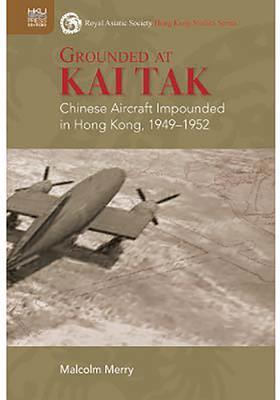China crisis: great powers wrestle over aircraft
Grounded at Kai Tak: Chinese Aircraft Impounded in Hong Kong, 1949-1952
Malcolm Merry
£43, Hong Kong University Press
★★★★✩
As the countdown to the Cold War began, a fraught legal battle embroiled China, the US, UK and Hong Kong over possession of 71 aeroplanes. This is the geopolitical backdrop to barrister Malcolm Merry’s trenchant account that takes in the end of the civil war in China where Mao Tse-tung’s communists were becoming ascendant on the mainland.
That was the trigger for Chinese civil airlines Central Air Transport Corporation and China National Aviation Corporation – conscious of the ‘threat that the communist advance posed to their business and their aircraft’ – to clamour for moving their headquarters to Kai Tak airfield in Hong Kong. These airlines were initially controlled by the nationalist government which aimed to keep the aeroplanes – 82 in all – out of the hands of the insurgents.

Yet while the Chinese airlines ‘saw advantages in keeping the planes in a jurisdiction under foreign control yet close to China’, the authorities in Hong Kong were ambivalent, pitted as they were between Chiang Kai-shek’s nationalist government and the communists. Governor Sir Alexander Grantham ‘did not want the embarrassment of harbouring the planes if and when there was a regime change in China’. With refugees fleeing China for Hong Kong, there was ‘potential for disputes that would disrupt the peace of the colony’. Moreover, Chinese planes at the small Kai Tax airfield might hinder Royal Air Force expansion plans on the British colony.
As for US interest, American airline Pan Am – envisaging a boom in air travel once the civil war was over – had ‘invested both money and personnel in one of the airlines’.
But once the communists had declared the formation of the Central People’s Government of the People’s Republic of China, new premier Chou En-lai said the planes were the property of his government, thus prompting general managers and staff of the airlines to demonstrate their sympathy with the communists by flying 12 of the planes back to China (one of the planes later returned to Hong Kong). US aviation entrepreneurs Lee Chennault and Whiting Willauer represented the nationalists ‘in efforts to wrest back the aircraft’.
Merry, who is also adjunct professor in the Faculty of Law at the University of Hong Kong, covers the battles that flared in the courts over possession of the aeroplanes in a readable style, yet never loses sight of the bigger geopolitical picture.
Nicholas Goodman is a sub-editor at the Law Society Gazette































No comments yet